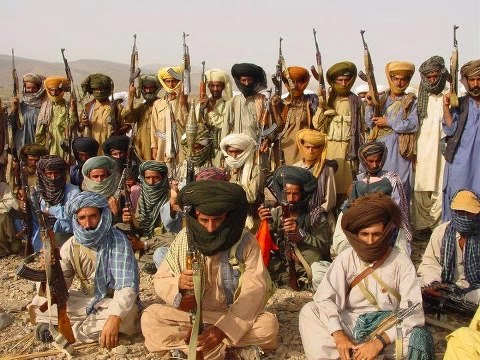Tehran Builds on Outreach to Taliban
By MARIA ABI-HABIB
KABUL—Iran has allowed the Taliban to open an office in eastern Iran and discussed providing them with surface-to-air missiles, ramping up the potential for cooperation with the insurgents, according to senior Afghan and Western officials.Iran's shift came after the U.S. and Afghanistan sealed a long-term partnership agreement in May, and in an effort to expand its options for retaliation should its nuclear facilities be attacked, the officials said.
"Iran is willing to put aside ideology and put aside deeply held religious values…for their ultimate goal: accelerating the departure of U.S. forces from Afghanistan," the official said.
The Iranian Embassy in Kabul and consulate in Herat, in western Afghanistan near the border with Iran, didn't respond to requests for comment.
A member of the Taliban's leadership council, the Quetta Shura, set up an office in the eastern Iranian city of Zahedan in late May, according to a senior Western diplomat in Kabul and a senior Afghan official. Zahedan sits near the borders with Pakistan and Afghanistan and on an easy transit route from the Pakistani city of Quetta, where the Taliban leadership is based.
The office is intended to allow Iran to coordinate with the Taliban against the U.S., the officials said.
In intercepted communications in early July, members of the Quds Force, a special unit of Iran's Revolutionary Guard, discussed plans to send surface-to-air missiles to insurgents in Afghanistan, according to the Western official. There is no information that Iran has delivered such missiles to the insurgents, Western officials said.
A U.S. decision to supply such missiles to the mujahedeen in the 1980s proved a game changer during the Soviet occupation, precipitating a Soviet withdrawal.
The U.S. has committed to withdraw most of its troops from Afghanistan by the end of 2014, but will maintain bases, mostly for special forces, after that.
The possible introduction of surface-to-air missiles should be seen as Iran's contingency planning if its nuclear facilities are attacked by Israel or America, coalition officials say. The Obama administration has described such a strike as an option if Iran proceeds with nuclear weapons production; Iran says its nuclear program is for peaceful purposes.
The dozens of U.S. bases in Afghanistan are on Iran's doorstep, and would be the most effective way for Iran to strike back if it is attacked first, officials say.
"Something significant would have to change…a strike against the home nation," for Iran to introduce surface-to-air missiles, a senior coalition military official in Kabul said. "Then, red lines will be crossed and things will probably change."
The official said the Iranians continue to provide "low-level lethal support" and training in Iran to the insurgency, but hold back from supplying "signature weapons" such as the explosively-formed penetrator, or EFP, mines that were widely used by pro-Iranian insurgents against U.S. troops in Iraq. The U.S. Embassy in Kabul declined to comment.
The increase in Iranian support for the Taliban comes after Tehran failed in its campaign to scuttle the U.S.-Afghan agreement in May, which establishes long-term U.S. military presence here post-2014.
Iran's ambassador to Kabul at the time urged Afghan lawmakers to vote against the agreement, and threatened economic reprisals such as the expulsion of millions of Afghans working in Iran if they didn't. The warning caused a public uproar in Afghanistan. Both houses of parliament proceeded to ratify the pact, and the Iranian ambassador was recalled in a low point in relations between the two countries under Afghan President Hamid Karzai.
In June, Iranian President Mahmoud Ahmadinejad escalated the issue, warning Mr. Karzai during a meeting at a regional conference in Beijing that Afghan civilians living around U.S. bases should be removed "for their own safety," according to senior Afghan officials familiar with the conversation.
Afghanistan's intelligence service in July said Iran was sending infiltrators into the country among the hundreds of Afghan refugees it deports every month, according to a Western military official who read the classified report. That coincides with what Western and Afghan officials say is increased Iranian surveillance of coalition military bases and U.S. government infrastructure in Afghanistan.
"Iran is the only neighboring country opposed to the Strategic Partnership Agreement," said a senior Afghan official close to Mr. Karzai. "Afghanistan is determined to have friendly and deep brotherly relations with Iran and this is our policy."
—Yaroslav Trofimov and Ziaulhaq Sultani contributed to this article. Write to Maria Abi-Habib at maria.habib@dowjones.com
A version of this article appeared August 1,
2012, on page A8 in the U.S. edition of The Wall Street Journal, with
the headline: Tehran Builds on Outreach to Taliban.


Comments
Post a Comment